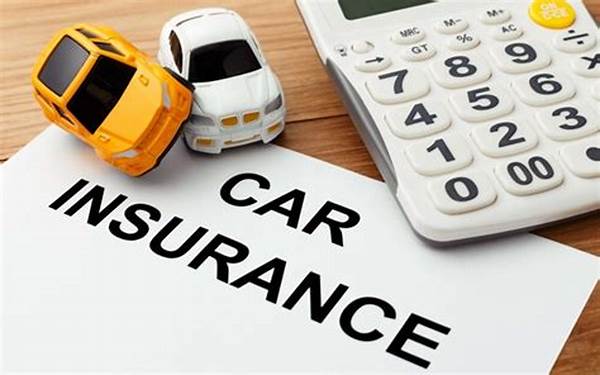As electric vehicles (EVs) become more popular, many drivers are considering them as an eco-friendly and cost-effective alternative to traditional gas-powered cars. However, buying insurance for an electric vehicle comes with its own set of unique considerations. Whether you’re a first-time buyer of an EV or looking to switch your current vehicle, choosing the right car insurance coverage is essential to protect your investment and ensure you’re financially prepared for unexpected events. In this article, we’ll explore the key aspects to consider when purchasing insurance for an electric vehicle, including what makes EV coverage different from traditional car insurance, the factors that influence premiums, and tips on finding the best policy for your needs.
1. Why Insurance for Electric Vehicles is Different
Electric vehicles require specialized insurance for several reasons, mainly because they have unique components that differ from traditional vehicles. These differences can impact the cost and coverage of your policy. EVs often include high-tech features, expensive batteries, and specialized parts that are not found in conventional cars. This can make repairs and replacements more costly, which may be reflected in your insurance premium. Additionally, the growing popularity of electric cars has led to a shift in how insurers assess risk and pricing.
One of the major factors that affect EV insurance rates is the price of the vehicle itself. Since electric cars tend to be more expensive than gas-powered cars, they are often insured at a higher value. Comprehensive and collision coverage might also be higher for EVs due to the high cost of replacing specialized parts such as the battery, which is often the most expensive part of an electric car.
2. Factors That Influence Insurance Premiums for EVs
When choosing car insurance for an electric vehicle, it’s important to understand the factors that can influence the cost of your premiums. Some of the key considerations include:

Vehicle Model and Value
Electric cars come in various makes and models, and their prices can vary significantly. Premiums for EVs are generally higher for luxury models with expensive features and technologies. Popular models such as the Tesla Model 3, for example, may come with a higher insurance rate due to its advanced technology and high replacement cost. On the other hand, more affordable EVs like the Nissan Leaf may have a lower premium.
Battery Replacement Costs
One of the key factors influencing the cost of insurance for EVs is the cost of replacing the battery. Electric vehicle batteries can be expensive to replace, with some models running into the thousands of dollars. Insuring the battery separately or ensuring the full replacement cost of the battery is crucial in your coverage plan. Be sure to check if your policy covers battery replacement and how the insurer handles battery-related claims.
Repair and Maintenance Costs
The cost of repairing electric vehicles can be higher due to the specialized components involved. EVs often require certified technicians and parts, which can be more costly compared to conventional car repairs. Make sure your insurance policy accounts for potential repair costs and includes a network of authorized repair shops that specialize in electric vehicle maintenance.
Driving Habits and Usage
As with traditional cars, your driving habits and usage patterns play a significant role in determining your premium. For instance, if you primarily use your EV for commuting in the city, your insurance may be less expensive than if you frequently drive long distances or use your vehicle for commercial purposes. It’s important to be clear about how you plan to use your electric car when applying for coverage to get the most accurate quote.
3. Types of Coverage for Electric Vehicles
When insuring your electric vehicle, it’s essential to understand the different types of coverage available to ensure you’re fully protected in case of an accident, theft, or damage. Common types of coverage for electric vehicles include:
Liability Coverage
Liability coverage is a standard part of any car insurance policy. It covers damages and injuries you may cause to others while driving your EV. If you’re at fault in an accident, this coverage will pay for the costs of medical bills and property damage suffered by other drivers or passengers. While this is a basic level of protection, it may not be enough if your EV is severely damaged or totaled in the accident.
Comprehensive Coverage
Comprehensive insurance protects your electric car from damages that are not caused by collisions. This includes natural disasters, theft, vandalism, and fire damage. Since electric vehicles are more likely to be stolen due to their high-value parts, comprehensive coverage is highly recommended. Be sure to review the policy to check for any exclusions, such as damage to the battery or other specialized EV components.
Collision Coverage
Collision coverage protects your electric vehicle in the event of an accident, even if you’re at fault. If your EV sustains damage in a collision, this coverage will help pay for repairs or the cost of replacing the car. Given that EVs can be costly to repair, collision coverage is an important aspect of your policy to ensure you’re adequately protected.
Uninsured/Underinsured Motorist Coverage
This coverage is vital for any driver, particularly those who drive in areas with a high rate of uninsured or underinsured drivers. It protects you if you’re in an accident caused by another driver who lacks sufficient insurance coverage to pay for your damages. This protection is essential for EV owners because the repair costs can be much higher than for traditional vehicles, and an underinsured driver might not be able to cover these expenses.
Roadside Assistance
Roadside assistance is an essential coverage for any driver, but it’s especially useful for electric vehicle owners, as breakdowns or battery malfunctions may occur. This coverage typically includes services such as towing, tire changes, and battery recharging. Having roadside assistance can be a life-saver if your EV runs out of charge or experiences an unexpected issue.
4. How to Find the Right Car Insurance for Your EV
When selecting car insurance for your electric vehicle, it’s crucial to shop around and compare quotes from different insurance providers. Here are some tips to help you find the best coverage for your EV:

1. Compare Quotes
Get quotes from multiple insurance companies to find the best price for your electric vehicle coverage. Each insurer may have different pricing models, so it’s important to compare premiums, deductibles, and coverage options to ensure you’re getting the best value.
2. Look for EV-Specific Discounts
Some insurers offer discounts specifically for electric vehicles. These discounts can be based on factors like the use of eco-friendly vehicles or your car’s safety features. Make sure to ask about any discounts that may apply to your EV to reduce your premium.
3. Consider Bundling Your Policies
Many insurance companies offer multi-policy discounts if you bundle your electric vehicle insurance with other policies, such as home or renters insurance. This can help you save on your premiums while ensuring comprehensive coverage for your EV.
4. Choose a Deductible You Can Afford
Selecting the right deductible is key to controlling your insurance costs. A higher deductible can lower your premium, but it also means you’ll need to pay more out-of-pocket if you file a claim. Choose a deductible that fits your budget and risk tolerance.
5. Final Thoughts
When purchasing insurance for your electric vehicle, it’s important to consider factors such as the value of the car, battery replacement costs, repair expenses, and coverage options. EV insurance can be more expensive than traditional car insurance due to the higher cost of the vehicle and its specialized components. However, by choosing the right coverage and shopping around for the best rates, you can ensure your electric car is protected without breaking the bank. Always review your policy carefully, ask about available discounts, and make sure you have adequate coverage for your specific needs.

Leave a Reply